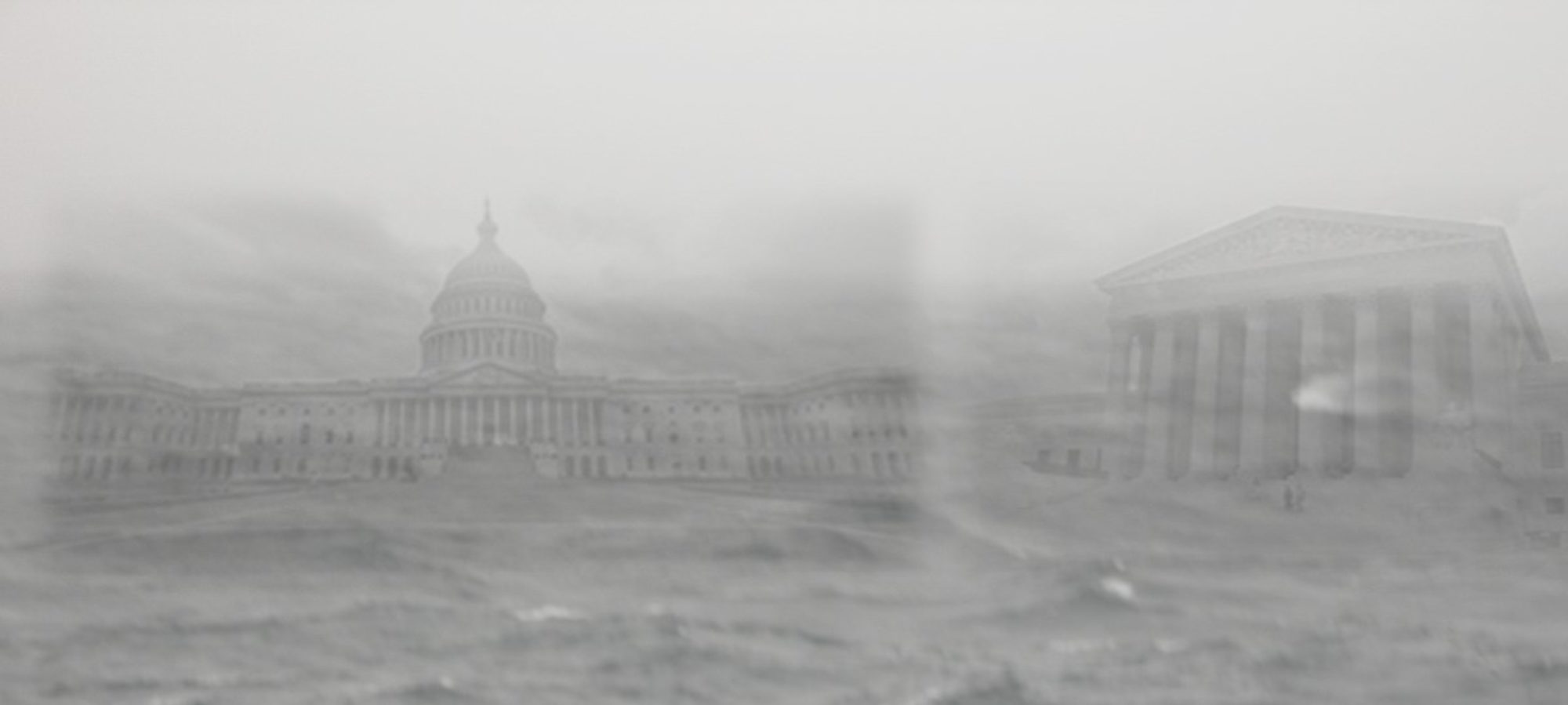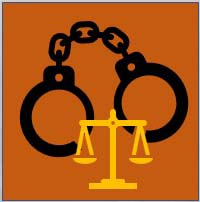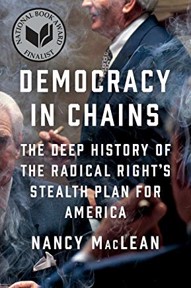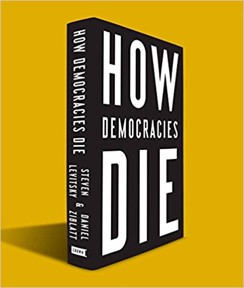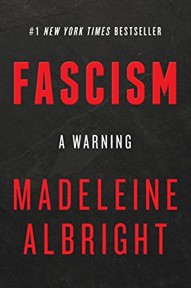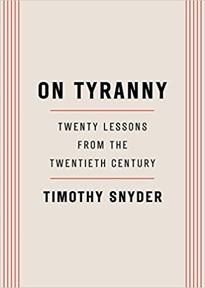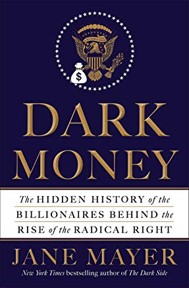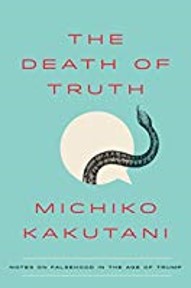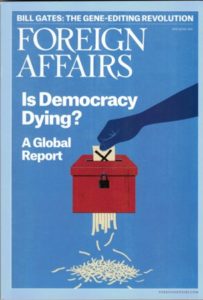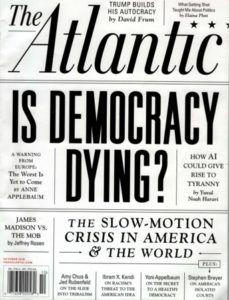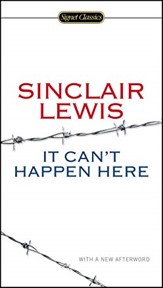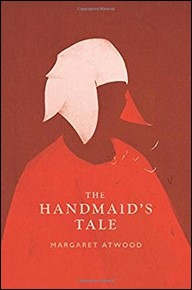The theme of Shallow State—authoritarianism and its roots have been brilliantly portrayed in several recent non-fiction books: Madeline Albright’s Fascism: A Warning; Steven Levitsky and Daniel Ziblatt’s How Democracies Die; Nancy MacLean’s Democracy in Chains; and Jane Mayer’s Dark Money. Timothy Snyder in On Tyranny presents short histories from the twentieth century as fascism took root in Europe and was gaining popularity in the United States. He then relates these lessons to what is happening today and shows how we, as citizens of democratic countries, can spot these trends and arm ourselves against them.
The May/June 2018 issue of Foreign Affairs featured several articles about fascism and the entire October 2018 issue of The Atlantic was devoted to articles about the demise of democracy.
In The Death of Truth, Michiko Kakutani explains how truth became an endangered species in contemporary America. In Shallow State, citizens are enslaved by lies, conspiracy theories, and attacks on the media by the regime in Washington.
Novelists in the past have warned how fascism could take root in America. Sinclair Lewis, in his 1935 novel It Can’t Happen Here, is a story about a populist who is elected president and immediately takes over the press and places his thuggish and unqualified supporters in positions of power. In 2004, Philip Roth wrote The Plot Against America, a counterfactual history in which Charles Lindbergh, the aviation hero and Nazi sympathizer, is elected President in 1940. Both novels point out that Americans can be susceptible to the cult of celebrity and a democratic election can lead to a tyranny of a majority when popular populist presidents take over the three branches of government.
The most dystopian of political novels don’t seem so farfetched today: Margaret Atwood’s The Handmaid’s Tale is a horror story about the takeover of the United States by radical fundamentalist Christians. And there is the terrifying dictatorship portrayed in George Orwell’s 1984 . Here is an excerpt from a conversation my characters have about how the political situation in Shallow State is beginning to resemble that in 1984:
Jared said, “Look at the preemptive arrests, the lies by the president and his government-controlled media, the torture of the Madison protestors, and the endless war on terrorism.”
“And Lipscomb’s hate rallies!” Joanne said. Joseph looked puzzled at this remark.
“Don’t you remember, Father? One of the scariest moments in the movie 1984 is the portrayal of the hate week rallies. Similarly, Lipscomb gathers his supporters and gets them worked into a hate-filled frenzy against Delacroix and Democrats in general. They shout things like “lock them up” and “Democrats deserve to die”.”
“And we are bombarded with doublespeak,” said Jared. “In the novel, the government and their media told carefully constructed lies that flatly contradicted what people knew to be true. People were expected to hold simultaneously two contradictory opinions and believe in both of them. The government used logic against logic and committed acts that were completely immoral while laying claim to morality. Doesn’t that sound like Lipscomb’s administration?”
Joanne said, “We even have Big Brother-style surveillance. The government can monitor our phone calls, email, our movements, and which political candidates we support.”
“Hold on,” Joseph said. “It’s not that bad. We don’t have a television in this house that monitors everything we say and do. But…” He frowned and added, “If the authorities could overhear our conversation, would they arrest us?”
Jared said, “I don’t think so, not yet. What they would do is send thugs and goons to harass us, just like they did to Joanne at Clark High School.”
